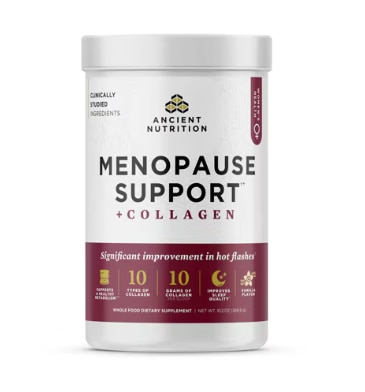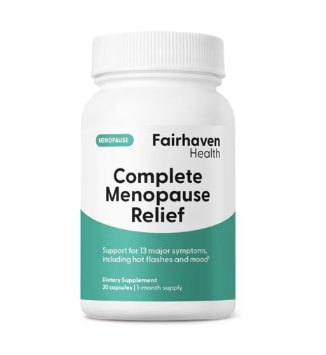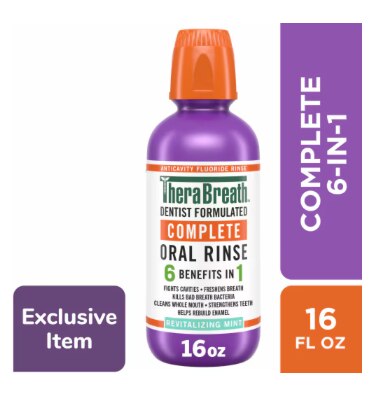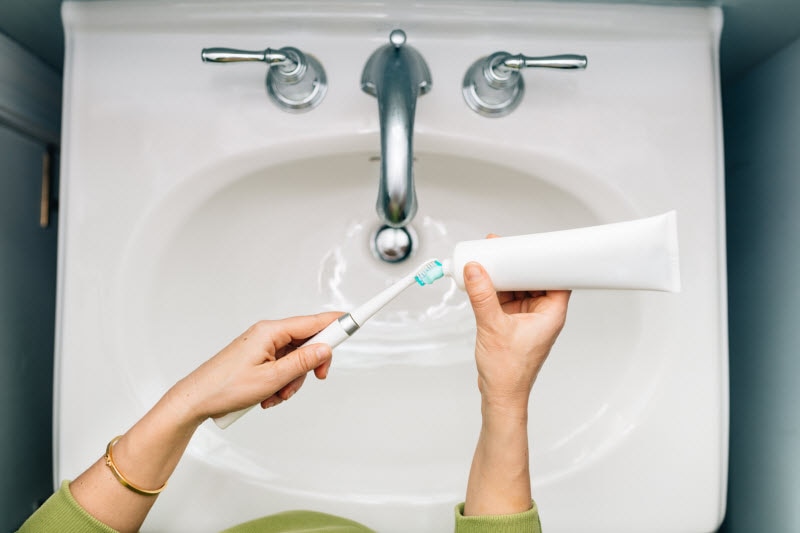While most women know about the hot flashes and mood swings associated with menopause, a vast majority don’t know that their oral health can be affected by menopause as well. One study found that a whopping 84% of women 50-plus did not realize that menopause can affect their teeth and gums.
The truth is, there are many mood and physical changes that women don’t realize are associated with menopause. One study found that 50% of women surveyed reported not feeling informed about menopause, and another study found that only about half of symptomatic women seek treatment.
The good news is that you can address problematic menopause symptoms, whether it’s hot flashes, bone loss, gingivitis or cavities, and not let menopause affect your quality of life.
What happens during menopause?
Menopause officially occurs 12 months after a woman’s last menstrual cycle. However, the time leading up to menopause, perimenopause, can last for several years, and is often when women start to experience menopause-related symptoms. Additionally, symptoms can last for some women for several years post menopause.
Most women reach menopause sometime between the ages of 45 and 55, with the average age of 52 in the U.S. During this time, women’s hormone production levels fluctuate, eventually settling at a lower level. Hormonal fluctuations and hormonal decline are usually the culprits of many symptoms such as hot flashes, anxiety, brain fog and sleep issues.
Lower levels of estrogen can also affect saliva production and bone density.
Menopause and oral health: What changes?
Saliva plays a crucial role in oral health for several reasons. It helps wash away food and food particles, prevents cavities and gum disease, and keeps your mouth moist. With reduced levels of estrogen affecting saliva production, your oral health may be impacted in several ways.
Dry mouth
Dry mouth is more than just an unpleasant sensation. Less saliva production can increase the risk of cavities, gum disease and oral infections—about 33% of women over the age of 50 report experiencing dry mouth.
Tooth decay
Again, reduced saliva can make it more likely that middle-aged women may be susceptible to tooth decay (again!). Not only does saliva wash away food debris that can lead to cavities, but it also contains decay-fighting minerals.
Gum disease
Hormonal changes also increase women’s risk of gingivitis, a mild form of gum disease characterized by red, irritated and inflamed gums. Menopausal gingivostomatitis is a more severe type of gingivitis, characterized by red and shiny gums that are irritated, inflamed, and prone to bleeding.
Tooth shifting, loss and loosening
A decline in estrogen can affect bone density and increase your risk of developing osteoporosis. As a result, the density and strength of your jawbone may be affected. This weakening of your jawbone can result in loose teeth, shifting teeth and, in some cases, tooth loss.
Receding gum line
According to Delta Denta, one in three women over 50 reported noticing their gum lines receding. Receding gumlines mean more tooth and root exposure, creating pockets that can increase bacterial accumulation.
How to protect your teeth from menopause-related changes
As with other menopause-related symptoms, such as hot flashes, sleep issues, gum irritation and dry mouth, you don’t have to live with them. The first step is to talk to your dentist or a menopause specialist about your symptoms.
Hormone therapy is an effective way to treat hot flashes and sleep issues — and also to reduce tooth loss. One study found that the risk of tooth loss was 24% lower in women who were currently using hormones.
Other ways to protect your teeth and gums during menopause include:
Be diligent about oral hygiene practices
Of course, you should always practice good oral hygiene, but it’s especially during perimenopause and menopause because of the hormonal changes going on in your body. What does good oral hygiene look like? You know.
- Brush your teeth for at least two minutes, twice a day, with a fluoride toothpaste.
- Floss daily
- Use an alcohol-free mouthwash for added protection
Stay hydrated
The best way to reduce dry mouth is to stay hydrated. Be sure to sip water throughout the day. Additionally, you can stimulate saliva production by chewing sugar-free gum or sucking on lozenges.
Visit your dentist regularly
While regular flossing and brushing go a long way in preventing tooth decay and gum disease, it is still essential to see your dentist regularly. Regular visits enable early detection of dental issues and provide vital professional cleanings.
Eat a healthy, balanced diet
Eating a healthy, balanced diet is essential during menopause to help manage various symptoms. Eating foods rich in calcium and vitamin D, such as low-fat yogurt, leafy greens and fortified cereals and oatmeal, can help boost bone health and density.
The first step to protecting yourself against menopause-related oral health issues is to learn what they are. The second step is to be diligent about reducing your risk of developing them.
Featured Products



The post The Surprising Ways Menopause Affects Your Oral Health first appeared on The Upside by Vitacost.com.


